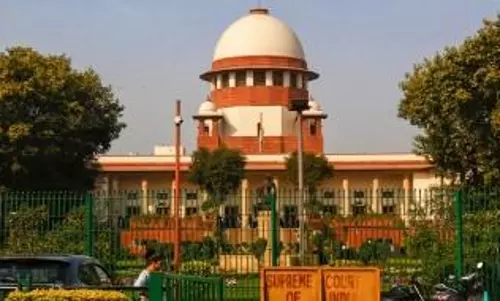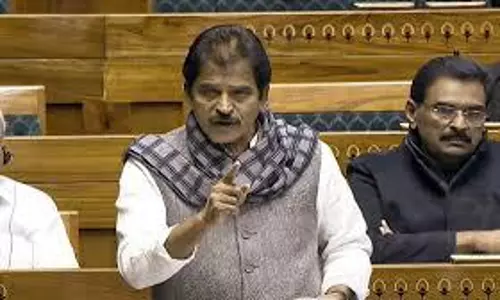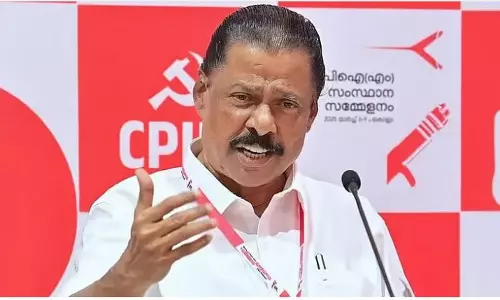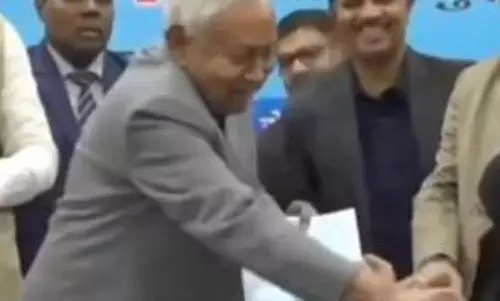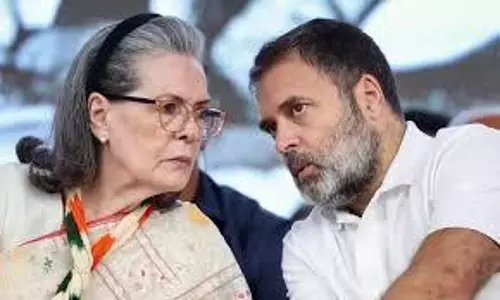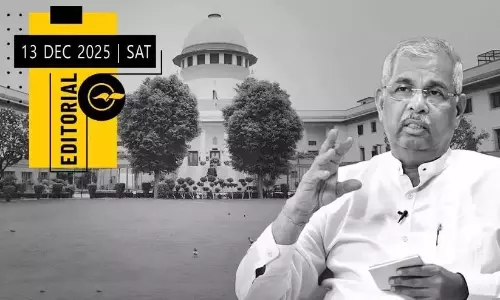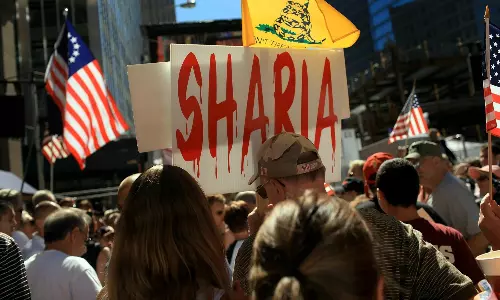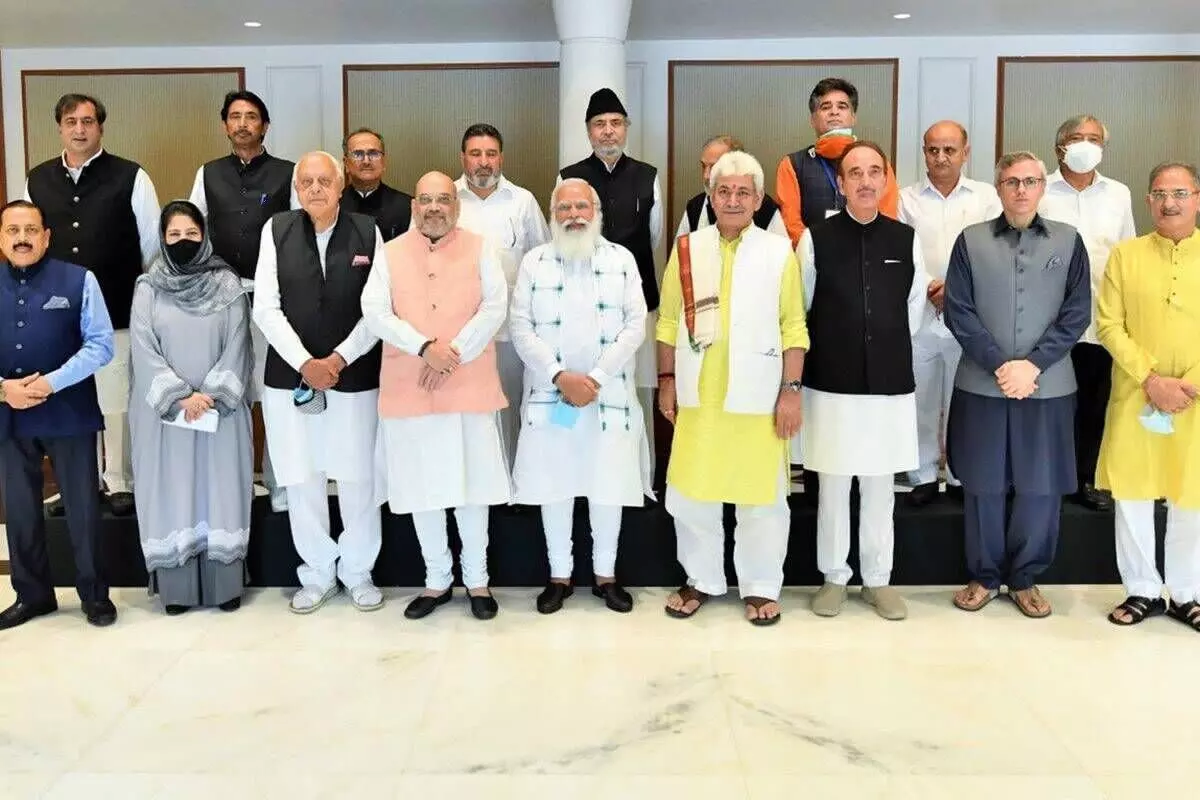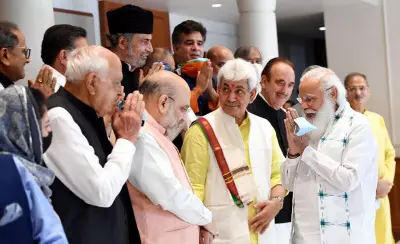
Kashmir: talks for the sake of it
text_fieldsIf one asks what was gained by the meeting convened last Thursday by Prime Minister Narendra Modi and home minister Amit Shah with Jammu-Kashmir leaders, the answer would be that it drew a blank. When Jammu-Kashmir's special status was repealed in August 2019 by amending the Constitution provisions and the state was bifurcated into two union territories, the BJP government at the Centre had pledged that statehood would be restored as soon as the situation in the region became conducive for it and peace could be guaranteed. What was seen following it was the union government's moves in the direction of prolonging the path to peaceful atmosphere. Whenever Jammu-Kashmir became tense because of border terrorism and Pakistan's provocations, what the Centre would take care to do was to isolate secessionists and try to solve the problem by calling mainstream political parties. But the Modi government, which has been implementing its Hindutva agenda in overdrive mode on the back of its brute majority, has mostly chosen to suppress unrest with military force. All the same, the regime kept repeating that this 'reform' effected by estranging the people from one another and making the Kashmir valley an open jail, was aimed at giving peace and progress to the state. To this, the union government put in detention, for long durations and to varying degrees, the leaders of all the mainstream political parties, including three former chief ministers of the state. It muzzled the Kashmiri population's voices by cutting telephone lines and blocking internet. And then it tried to anoint its favourite political figures as new leaders and to form proxy parties of the sangh parivar under such leaders. But attempts to loosen what it had gagged and held under military boots did not yield salutary experience to the Centre. Puppet parties it formed were short-lived.
In the election to the district development councils (DDC) using the entire government machinery, it was proved that the people are still with forces that oppose the excesses of the Hindutva government. Of the 280 seats in the DDC elections, 110 were won by People's Alliance for Gupkar Declaration (PAGD), the alliance of parties shunned by Modi government. When PAGD won six districts of the Valley, independents got the upper hand in two districts. Although the BJP won 75 seats in the Jammu region with the advantage they already had, the party was not able to secure a single seat in the Valley. That the Gupkar alliance - which was formed with the avowed objective of regaining the special status of Kashmir - could not be beaten testified to what the Kashmiri psyche was asking for. It is after this that the union government acted on the realisation that even after two years, it could not do anything in the path of peace or progress, and set out in search of a resolution. Border dispute with China, the US withdrawal from Afghanistan and Pakistan's strategic importance in the emerging scenario, cease-fire in the border, the gigantic development schemes in the region jointly by China and Pakistan, the decision of Pakistan to move away from geo-political focus to geo-economic diplomacy are all developments in the region that exert a pressure on the Modi government for the stability of Kashmir.
The takeaway from Thursday's meeting proves that the Modi government has not been prepared to view with due seriousness the new political developments of the region that would put the very country in crisis. The general perception before the talks was that restoration of special status, election and delimitation of constituencies would be the agenda of the meeting. On the other hand, the Kashmiri leaders who came on the invitation were there mainly to demand the reinstatement of the special status. But as for the BJP-led Centre, restoring Article 370 is a closed chapter. Although statehood was promised in Parliament, it is as yet unclear when that will happen. The only thing the Centre had to say was about increasing the numerical strength of the assembly from 107 to 114. The BJP, which redefined the demography of Kashmir, is clearly in an attempt to create a scenario favourable for majority for itself or for parties friendly with it. And that was all that Modi and Amit Shah had to inform the meeting. Thus for those who had seen the discussion as path to re-establishing peace in Kashmir and by corollary it in the region, the outcome was quite disappointing. It has even to be feared that matters would continue as they used to be and such uncertainty would become an opportunity for border terrorism. The drone attack on Sunday in Jammu air force camp and the endangering of police in Pulwama have to be viewed as hazard signs. This is a critical time for the country when the Centre has to commit all its attention to save the country from disintegrating forces by setting aside vested political and racial interests, and holding together the Kashmiris' land and minds.




